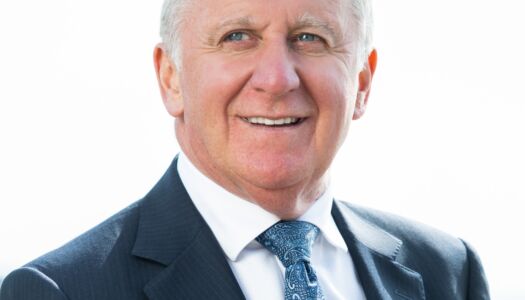There has been much commentary in recent weeks around how COVID-19 could be an accelerator in driving forward the sustainable finance agenda.
In the short term, markets have, according to HSBC, reacted positively to ESG-linked investments, which in the depths of the pandemic slump, appeared to outperform benchmarks.
In the longer term, commentators have suggested COVID-19 will sharpen the focus on ESG criteria and practice, embedding sustainable finance as a strategic priority, and adding greater sophistication in an area where there is still plenty of scope for progress in terms of weighting across the E, S and G strands and better measurement and evaluation.
With the fallout of the pandemic forecast to shrink the global economy by 3% this year, it stands to reason that investment focussed on producing social, governance and environmental good, that can contribute positively to rebuilding not just economies but communities too, should prevail.
It’s telling that, only this week, the UK Chancellor announced a £3bn package of green investment, tabled both as part of the UK government’s plans to decarbonize the economy and as part of its COVID-19 economic recovery strategy.
The reality is that sustainable finance has been recognised as a strategic priority for some time now – even before coronavirus became household terminology, ESG, impact investing and sustainable finance was on a clear upward trajectory.
Certainly, sustainable finance shows no signs of slowing – today, it is an area worth some US$30 trillion. In fact, a new report looking at the state of play in the alternative funds landscape published by Funds Europe this week, and supported by Jersey Finance, points to the ongoing focus on ESG – that report found that almost three-quarters (74%) of respondents said that ESG was either important or critical to alternative investment strategies.
From Jersey’s point of view, as a forward-thinking international finance centre (IFC) we have recognised the importance of embedding sustainability in our approach for some time – and as a result, Jersey already has a huge amount of experience in supporting the sustainable finance needs of international governments, businesses, families and investors, right across the ESG spectrum – through our investment fund capabilities, our core banking platform, our private client proposition, and our global connectivity.
But we also acknowledge that we need to do more, as asset owners increasingly seek investments with purpose, driven by a growing recognition of the impact of climate change and the rise of a new generation of millennial principals who are demanding higher standards of ESG in their portfolios.
While some of that drive will be accelerated by COVID-19, a lot is already being done in this area. Sustainable finance remains a clear part of the agenda of international agencies, for instance. In mid-April, IOSCO issued its Report on Sustainable Finance and the Role of Securities Regulators and IOSCO, which seeks to reconcile the different approaches to sustainability and climate change taken in different regions of the world.
The EU remains similarly focussed. At the beginning of April, the European Commission launched a public consultation on sustainable finance, building on announcements made earlier in the year about the Sustainable Europe Investment Plan.
With all this in mind, I was really pleased to announce last month that we were engaging with Andrew Mitchell of Equilibrium Futures, to help us articulate our bold and ambitious long-term vision for sustainable finance, and develop a two-year strategy that places sustainability at the core of what we do.
We have also recently launched a new and improved sustainable finance sector page on our website and worked really hard to achieve the Jersey Good Business Charter earlier this year, which reflects our commitment as an organisation to demonstrating the highest standards of ethics.
In addition, the Jersey Financial Services Commission (JFSC) published a consultation paper last month, setting out proposals to enhance disclosure and governance requirements for sustainable investments.
Meanwhile, Digital Jersey also announced earlier this year that Jersey would be taking part, as one of only seven cities or territories, in the United Nations’ ‘United 4 Smart Sustainable Cities’ initiative.
Together, all of this adds up to an impressive jurisdictional effort – and it will all be absolutely vital in helping Jersey’s finance industry and businesses more widely to support our government’s efforts to build a better, more sustainable future for our Island as we embark on a journey of economic recovery and decarbonization, while also attracting new business to Jersey and making a positive impact in communities around the world.
These are all themes we’ll be exploring further at our annual private wealth conference, ‘Making a Positive Impact’, in London in December.
There’s no doubt that the world in which finance has to operate is changing rapidly. Just how the pandemic will play out is impossible to forecast and the outcomes for sustainable finance are complex and likely to be influenced by political as well as social and market forces.
But IFCs like Jersey that are forward-thinking, that can adapt quickly to the circumstances and that are on the front foot, ready to support best practice in this area will be in high demand.





